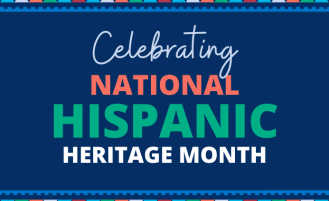Holiday Help for Substance Use and Mental Health Challenges
The holiday season is often viewed as a time for celebration and connection, but for individuals with substance use disorder (SUD) and co-occurring mental health challenges, such as anxiety and depression, it can bring added stress and unique triggers. At Overlake, we understand the dual challenges of managing SUD alongside mental health conditions. That’s why we’re committed to providing specialized support and resources to help patients and their families navigate this season.
Unique Holiday Stressors for Those with SUD and Mental Health Challenges
The holidays can amplify stressors, creating situations that challenge emotional well-being. Common stressors include:

- Social and environmental triggers: Holiday gatherings often include alcohol or other substances, which can present high-risk situations for individuals who are abstaining from using substances. The increased social pressure to “join in” or fit traditional holiday norms can be overwhelming, especially for those with anxiety, depression or other mental health conditions.
- Emotional triggers: The season can bring up unresolved family dynamics, grief or loneliness. For those with depression or anxiety, these heightened emotions can feel difficult to manage, creating a sense of isolation.
- Financial pressures: The cost of gift-giving, travel and holiday events can increase stress and anxiety, compounding feelings of inadequacy or financial insecurity.
Practical Coping Tools for SUD and Mental Health Management During the Holidays
At Overlake’s Behavioral Health Unit, we take a whole-person approach to support, offering tools to help manage both substance use and mental health needs. Here are some effective coping strategies:
- Practice mindfulness: Techniques like deep breathing, grounding exercises, yoga or brief mindfulness sessions can help you manage anxiety and stay present, minimizing the risk of relapse and emotional spirals.
- Set boundaries: Set healthy boundaries with family and friends. This might mean saying no to gatherings that feel too risky or creating “safe spaces” with supportive people who understand your journey.
- Utilize support networks: Engaging with support networks can be hugely beneficial—whether 12-step meetings, therapy or family support groups. Support networks can provide empathy, encouragement and accountability.
Family Support: How Families Can Help During the Holidays
Families play a vital role in supporting their loved one’s sobriety and mental well-being throughout the holiday season. Here are some helpful ways to offer support:
- Education on triggers: Understanding the unique triggers associated with SUD and mental health challenges can make a big difference. Overlake offers free mental health classes and training to help you create a safe, supportive environment.
- Creating inclusive, substance-free celebrations: Families can reduce risks by planning inclusive gatherings that do not involve substances. Additionally, offering activities like game nights, movie marathons, or outdoor events helps create a warm environment for connection without unnecessary triggers.
- Recognizing self-care: Family members should prioritize their own self-care as well. When families take time to care for their mental health, they are better equipped to support their loved ones.
Hospital Resources and Support Services
Throughout the holiday season, Overlake provides a range of resources for patients and families facing these challenges:
- Hospital resources:
- Outpatient Psychiatry: Mental health evaluation, diagnosis, medication management and psychotherapy services for adults who are currently receiving medication management through Overlake Psychiatric Services.
- Partial Day Hospital: Provides group psychotherapy for people over the age of 18. The program is intended for patients experiencing significant symptoms of mood disorder or anxiety that are not managed adequately in a typical outpatient setting. The groups are focused on building skills in self-care, life balance, stress management, cognitive behavioral therapy and interpersonal relationships. The program operates from 8:30 a.m. to 2:30 p.m., Monday through Friday. The average length of stay is seven to nine days.
- Inpatient Behavioral Health: Patients experiencing an acute psychiatric emergency, please go to the nearest ER to be assessed and referred as appropriate to the inpatient behavioral health unit. The Overlake Behavioral Health Unit offers two programs: an inpatient group therapy-focused program and a dual-diagnosis program to help stabilize acute mental health needs and address substance use disorders.
- Educational classes: Overlake offers a variety of free mental health classes and training.
- Self-care apps:
- Calm: This free app offers guided meditations (3–25 minutes), celebrity-narrated sleep stories, soundscapes, breathing exercises, and content for children to help manage stress, sleep and overall mental health.
- Insight Timer: Another free app with meditations for sleep, stress relief, anxiety reduction and spirituality.
- Community resources: Al-Anon, Co-Dependents Anonymous, Alcoholics Anonymous, Celebrate Recovery, and SMART Recovery.








